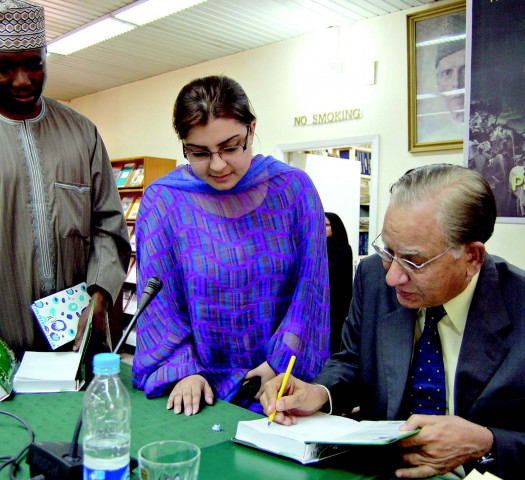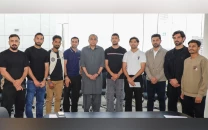Book launch Memoirs of an economist
Dr Parvez Hasan’s book on Pakistan’s economic history and issues launched.

It is no mystery that the per capita income of China is greater than Pakistan, but did you know that Pakistan beats the former in terms of per capita consumption?
Well-known development economist Dr Parvez Hasan revealed this modest but shocking titbit at the launching ceremony of his latest book at the Institute of Strategic Studies Islamabad (ISSI), held in collaboration with Ferozsons Private Limited.
Titled “My life My country: Memoirs of a Pakistani Economist”, the book, according to speakers at the ceremony, is a useful resource for policy makers, researchers, economists and students for understanding the country’s economic history and learning from it to “avoid mistakes in the past and plan better policies for the nation’s future prosperity.” According to one of the speakers, the book is “easy to read and uplifting.”
The launch was attended by a significant number of experts, including diplomats, economists, journalists and policy-makers. Those who spoke on the occasion included former ambassador and current director-general of the ISSI, Ashraf Jehangir Qazi, former finance minister, Shahid Javed Burki, executive editor of The Express Tribune, Muhammad Ziauddin, former advisor of the Ministry of Finance, Sakib Sherani and the book’s author, Dr Hasan.
The speakers were generally in agreement as they praised the author’s effort in bringing attention to a “realistic” assessment of the economic woes and challenges confronting the nation.
They used the opportunity granted by the occasion to make calls for the promotion of good governance, improvement in tax collection, enhancement of spending on social sector and infrastructure development and the creation of more job opportunities to deal with poverty and the demographic dividend.
Qazi was of the view that the vast majority of Pakistanis subsist below the poverty line and the only recourse to effectively deal with growing poverty is to invest in human capital, especially in the youth, to create “demographic dividends and more jobs for the people.” Burki added that the promotion of good governance was just as necessary, as investor confidence would otherwise continue to plummet. He considered international trade to be the main driver of economic growth.
Likewise, Sherani also stressed the importance of good governance through which, in his view, “the weak foundations of the country’s economy could be strengthened to foster progress.” Another speaker emphasised enhancement
in revenue generation through taxes.
The author, Dr Hasan, vowed that all the claims he had made in the book were based on factual truths. Acknowledging the gravity of the country’s current economic challenges, he nevertheless expressed optimism for the future, putting his trust in the “exploitation of the country’s enormous human capital.” He also laid emphasis on the need to develop the agricultural sector and exploit its full, untapped potential.
Published in The Express Tribune, April 9th, 2011.



















COMMENTS
Comments are moderated and generally will be posted if they are on-topic and not abusive.
For more information, please see our Comments FAQ